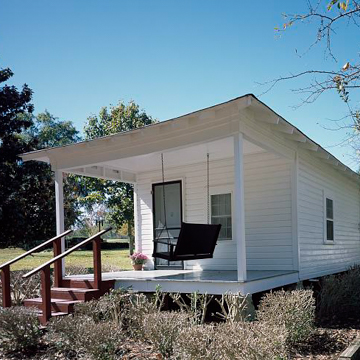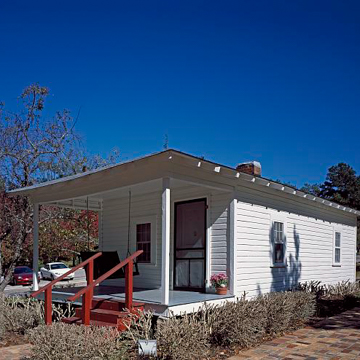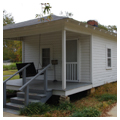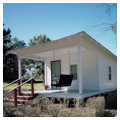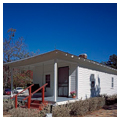While the residence popularly associated with Elvis Presley is Graceland in Memphis, Tennessee, this Tupelo house his father, Vernon, built is the place where he was born and lived until the age of thirteen. Now adjacent to subdivisions and part of an extensive campus, it stood in rural surroundings in Elvis's day and is in no way extraordinary, being a small two-room, wood-frame, shotgun cottage with a hipped roof and a front porch supported by thin wooden columns. The City of Tupelo purchased it in 1957, and Elvis donated the proceeds from a fairgrounds concert that year toward the development of a park around it. The local firm of Johnson and McCarty Architects designed the chapel (1979). Subsequently the small, gable-roofed church (c.1930) attended by the Presley family was relocated to the site. This was the place where Elvis first heard gospel singing, and to the end of his life he considered himself first and foremost an interpreter of gospel music. The museum was constructed in 1992, and most of its contents came from the collection of Presley family friend, Janelle McComb.
You are here
Elvis Presley Birthplace
If SAH Archipedia has been useful to you, please consider supporting it.
SAH Archipedia tells the story of the United States through its buildings, landscapes, and cities. This freely available resource empowers the public with authoritative knowledge that deepens their understanding and appreciation of the built environment. But the Society of Architectural Historians, which created SAH Archipedia with University of Virginia Press, needs your support to maintain the high-caliber research, writing, photography, cartography, editing, design, and programming that make SAH Archipedia a trusted online resource available to all who value the history of place, heritage tourism, and learning.















